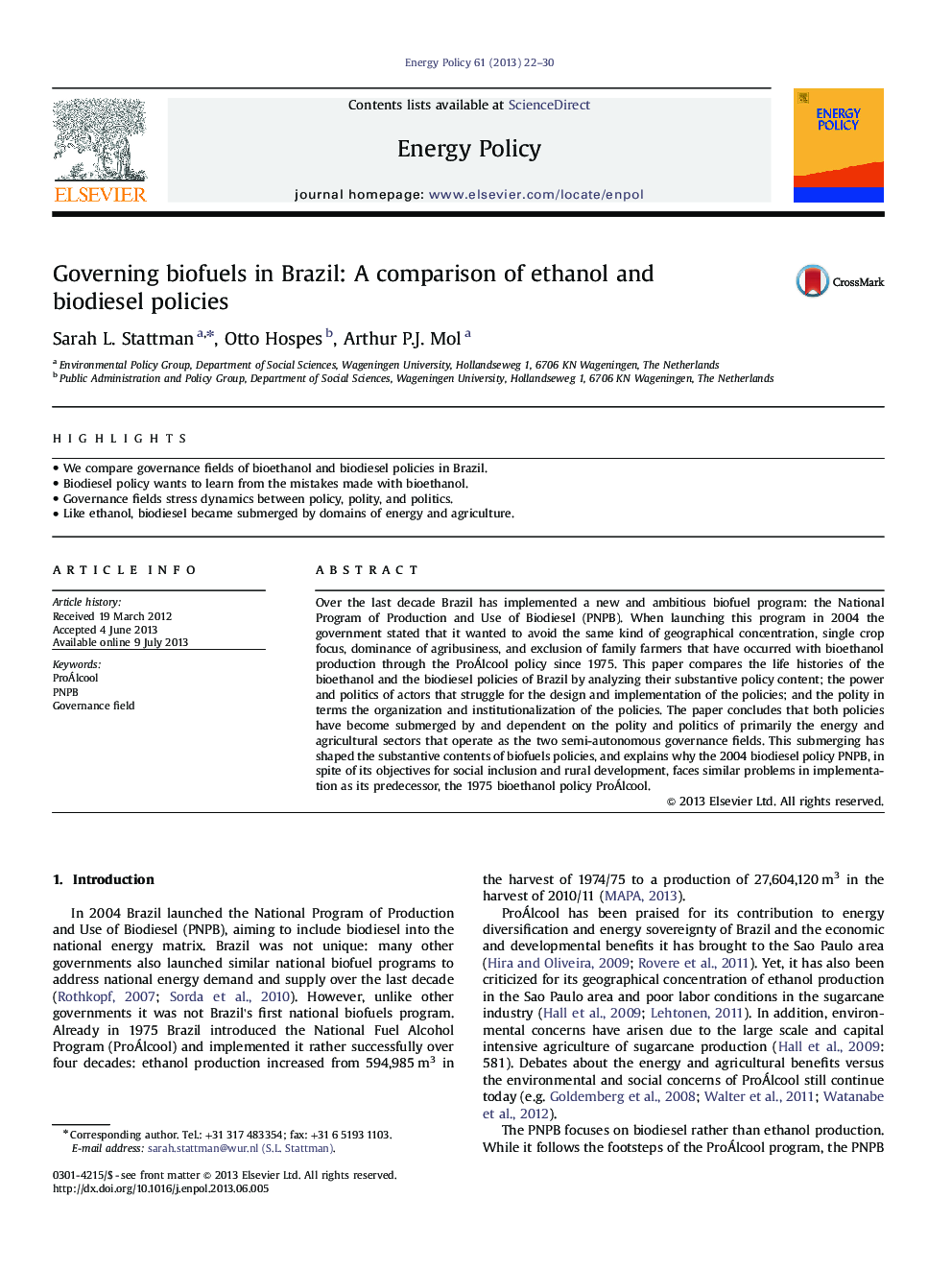| Article ID | Journal | Published Year | Pages | File Type |
|---|---|---|---|---|
| 7403856 | Energy Policy | 2013 | 9 Pages |
Abstract
Over the last decade Brazil has implemented a new and ambitious biofuel program: the National Program of Production and Use of Biodiesel (PNPB). When launching this program in 2004 the government stated that it wanted to avoid the same kind of geographical concentration, single crop focus, dominance of agribusiness, and exclusion of family farmers that have occurred with bioethanol production through the ProÁlcool policy since 1975. This paper compares the life histories of the bioethanol and the biodiesel policies of Brazil by analyzing their substantive policy content; the power and politics of actors that struggle for the design and implementation of the policies; and the polity in terms the organization and institutionalization of the policies. The paper concludes that both policies have become submerged by and dependent on the polity and politics of primarily the energy and agricultural sectors that operate as the two semi-autonomous governance fields. This submerging has shaped the substantive contents of biofuels policies, and explains why the 2004 biodiesel policy PNPB, in spite of its objectives for social inclusion and rural development, faces similar problems in implementation as its predecessor, the 1975 bioethanol policy ProÁlcool.
Keywords
Related Topics
Physical Sciences and Engineering
Energy
Energy Engineering and Power Technology
Authors
Sarah L. Stattman, Otto Hospes, Arthur P.J. Mol,
